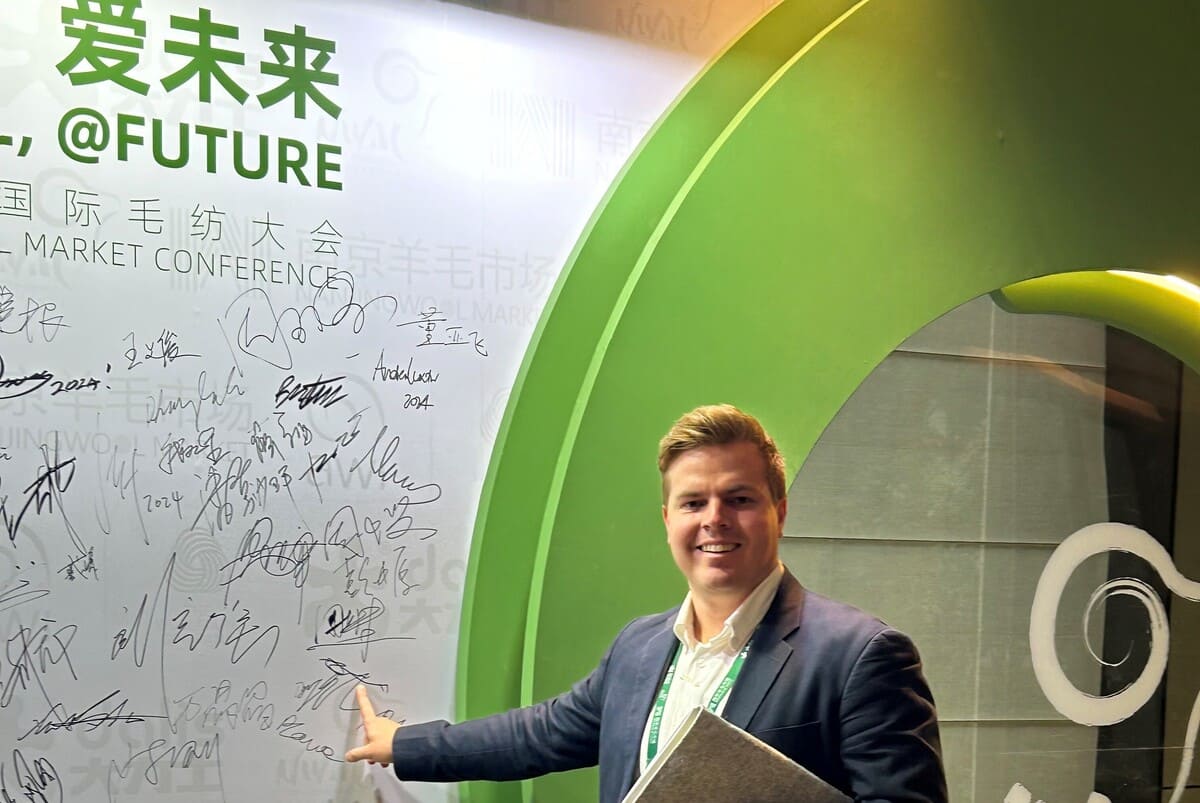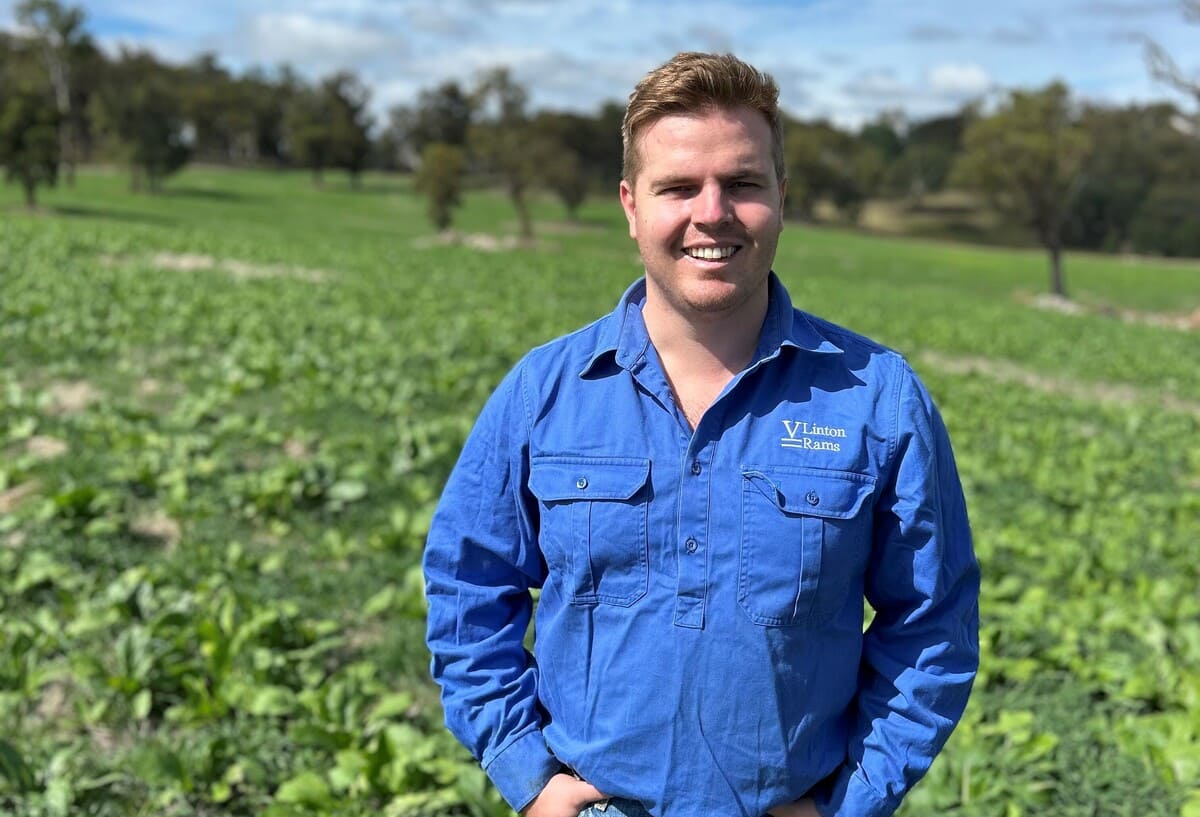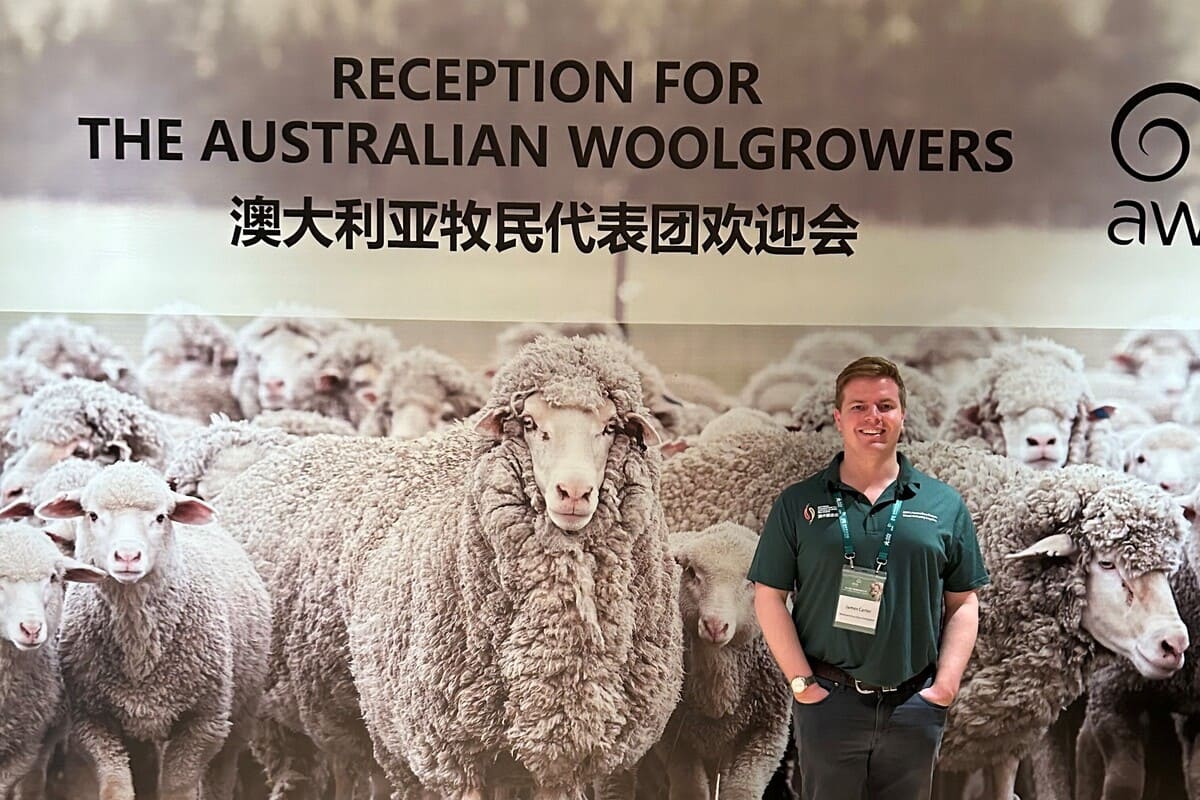Posted by on
31/03/2025
Growing up deep in NSW’s New England cold country, James Carter has a first-hand appreciation for wool.
For five generations the Carters have grown wool, and gratefully worn it during the harsh northern NSW winters – and now James is looking to the future to ensure the long-term viability of this iconic natural fibre.
Recently James was one of ten Australian Future Wool Industry Leaders chosen to participate in a tour of Chinese wool processing mills, and attend the Nanjing Wool Market Conference.
And his observations from the experience are reassuring for the Australian industry.
“One thing that stood out was the amount of investment in wool processing throughout China, it’s optimistic to see so much infrastructure implemented in the supply chain to specialise in wool, and it makes us feel the future of wool is bright," he said.
With the majority of Australian wool purchased to complete early stage processing in China, James was encouraged by China’s investment in, and commitment to, processing Australian wool.
“Wool growing in Australia has such a strong history, and with the continual ups and downs of agriculture, it’s terrific to have China so invested in continuing this story.”
“I love wearing wool, it’s all natural, versatile and comfortable, it breaks down sustainably and it’s a fibre all Australian’s should wear proudly.”

James gained valuable global industry insights on his tour of China
James’ family run 4,000 fine wool Merinos and prime lambs on their Walcha property “Caubaune”, while James balances his industry participation and family farm involvement with a Rabobank career.
The best of both worlds, on farm and off
A Rural Manager based in Dalby, while there aren’t too many sheep in his patch, James welcomes the exposure to different enterprises his Rabobank role affords.
Embarking on his career in Toowoomba, James spent three years in Bundaberg and is coming up to three years in Dalby, and admits it’s a path he never would have envisioned.
“I’d never considered regions such as Bundaberg before – it feels like a world away from Walcha – yet it was such a valuable experience and exposed me to coastal cropping, sugar cane, macadamia and horticulture production which I’m grateful for.”
In Dalby he’s gained expertise in cropping and cotton, and he believes working with some of Australia’s premier farming clients has provided valuable business insights.
“Everyone has a different way of running a business across varying landscapes and commodities, yet largely the issues are similar, and I enjoy applying that cross-sectorial knowledge – you never know what you may pick out of a discussion with a horticulture discussion that can be applied to a livestock producer.”

James at home on his family’s Walcha property.
While he may not be working directly with sheep producers in his role, James is contributing his knowledge through Rabobank’s Sheep Commodity Sector Group (CSG) an internal group of staff working across the bank with an interest in the sheep and wool industry.
“The Sheep CSG is a way I can remain involved in the sector, helping educate and promote the sheep industry within the bank, provide resources to help support managers, raise awareness on challenges and opportunities, and showcase the external knowledge piece through events such as Lambex.”
“That’s the beauty of working for Rabobank, it’s dedicated to agriculture, so contributing to the prosperity of farmers and industry is at its core, and that’s what really attracted me to a career here.”
Helping lead an inspired next generation
Whichever hat he’s wearing – be it his Akubra in the yards or his Rabobank cap – James is empowered by helping next-gen farmers enter industry discussions early in their careers.
“I feel fortunate to have had opportunities such as the recent tour to China, which was organised by Australian Wool Innovation in conjunction with the National Foundation for Australia–China Relations, thanks to my industry contribution,” he explained.
“Getting involved at an industry level early, even as an observer, enables an opportunity to build knowledge and confidence for constructive future discussions.”
“It also provides a pathway of succession within industry, and ensures you have a future seat at the table.”
A different set of eyes and the fresh perspective of young people at an industry level can also be valuable, James believed.
“There’s a really exciting synergy between the existing leaders, and young emerging leaders, and it feels like we’re at a junction where we can all learn from each other.”

Industry participation has opened up a world of opportunity
Having enjoyed support from a number of mentors throughout his career, from family members to industry stakeholders, James is heartened by the camaraderie within both the farming and agri banking industries.
“I feel extremely lucky to be where I am today, helping back on the farm when I can to produce one of Australia’s most iconic fibres, and at Rabobank, supporting and learning all about my clients and how they’ve gotten to where they are today – it doesn’t happen overnight, and being part of their story is a genuine privilege.”
